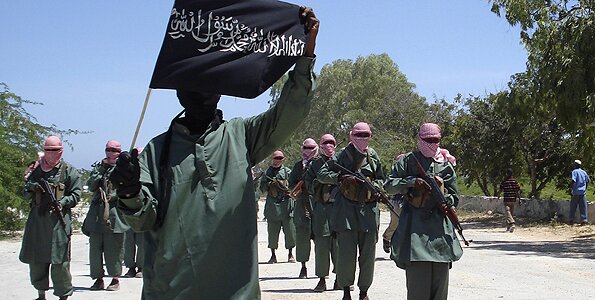Who is in charge? How outside forces call the shots in war-ravaged Somalia
 Somalia is currently under what James Fearon and David Laitin of Stanford University call “a neo-trusteeship system”.
Somalia is currently under what James Fearon and David Laitin of Stanford University call “a neo-trusteeship system”.
Various external powers, while disagreeing among themselves, make the important decisions for the Somali people.
On January 30, 2011, the Ethiopian-dominated Intergovernmental Authority on Development (Igad), a regional organisation comprised of seven East African states, called for an extension of the Somali parliament’s mandate.
The dysfunctional Somali parliament duly understood the message sent by Addis Ababa and within three days unilaterally extended its mandate for three years.
The US and UN rejected the unilateral extension, with James Steinberg, the US deputy secretary of state, arguing that it would strengthen al-Shabaab and Augustine Mahiga, the UN special representative for Somalia, joining in the chorus of criticism.
The disagreement within the international community over Somalia was exposed, with Ethiopia and Igad lining up on one side and the US and UN on the other.
The fact that agencies within the US have at times pursued different policies in Somalia adds another layer of complexity.
The defence department views Somalia through the lens of the “war on terror” and, as a result, allies itself with Ethiopia, while the state department is aligned more closely with the rest of the international community.
Two months on, the Obama administration is still insisting that the decision to extend the mandate be reversed.
As a compromise, Washington has suggested a one-year extension of the parliamentary mandate and two back-to-back presidential elections in August 2011 and 2012.
But the Obama administration has condemned neither Igad nor Ethiopia for triggering and defending the Somali parliament’s decision at international forums.
Logic dictates that if Washington is so serious about this it should direct its concerns to the source of the latest political entanglement — Ethiopia.
And, as bizarre as this may seem, Meles Zenawi, the Ethiopian prime minister, could deliver a reversal of the decision much more promptly than the Somali parliament.
Meanwhile, the UK is positioning itself to lead Somalia’s post-transition period after August 2011 — a role it sought to kick start during a conference it hosted in February.
Unsurprisingly, besides some general recommendations, nothing substantive came out of the gathering.
businessdailyafrica.com
Comments
comments
 Calendar
Calendar






































